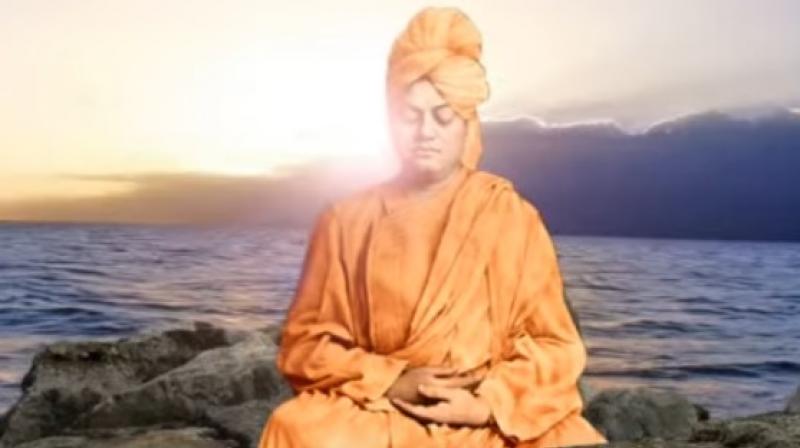Despite English language skills, Vivekananda had average marks in the subject
Author Hindol Sengupta argues that it is Vivekananda's modernity that appeals to us today.

New Delhi: Swami Vivekananda's English language skills captivated thousands but his marks in the subject in the three university examinations he took were far from impressive, says a new book on the 19th century philosopher-monk.
"The Modern Monk: What Vivekananda Means to Us Today" takes a fresh look into the life of one of the most important figures in the modern imagination of India.
Author Hindol Sengupta argues that it is Vivekananda's modernity that appeals to us today. He is unlike any monk we have known. He is confined neither by history nor by ritual, and is constantly questioning everything around him, including himself.
"Born in the family of a rich lawyer, he was able to get pretty much the best available education - including studying at the famed Metropolitan Institution school in Calcutta. This was perhaps why he spoke and wrote English with the fluency of the British," the book, published by Penguin, says.
The author, however, goes on to say that Vivekananda's marks were not reflective of his skills, particularly those in English.
"For a man whose erudition and English language skills were impressive enough to captivate thousands, not least the Americans at the Parliament of Religions and afterwards, his marks were dismal," he says.
"He took three university examinations - the entrance examination, the First Arts Standard (FA, which later became Intermediate Arts or IA) and the Bachelor of Arts (BA). His scores in the English language were 47 per cent at the entrance level, 46 per cent in FA and 56 per cent in BA," he writes.
His marks in other subjects like mathematics and Sanskrit were also average.
Quoting from various sources like Vivekananda's writings, his letters and speeches, Sengupta mentions how the monk loved French cookbooks, invented a new way of making khichdi and was interested in the engineering behind ship-building and the technology that makes ammunition among other interesting facts.

